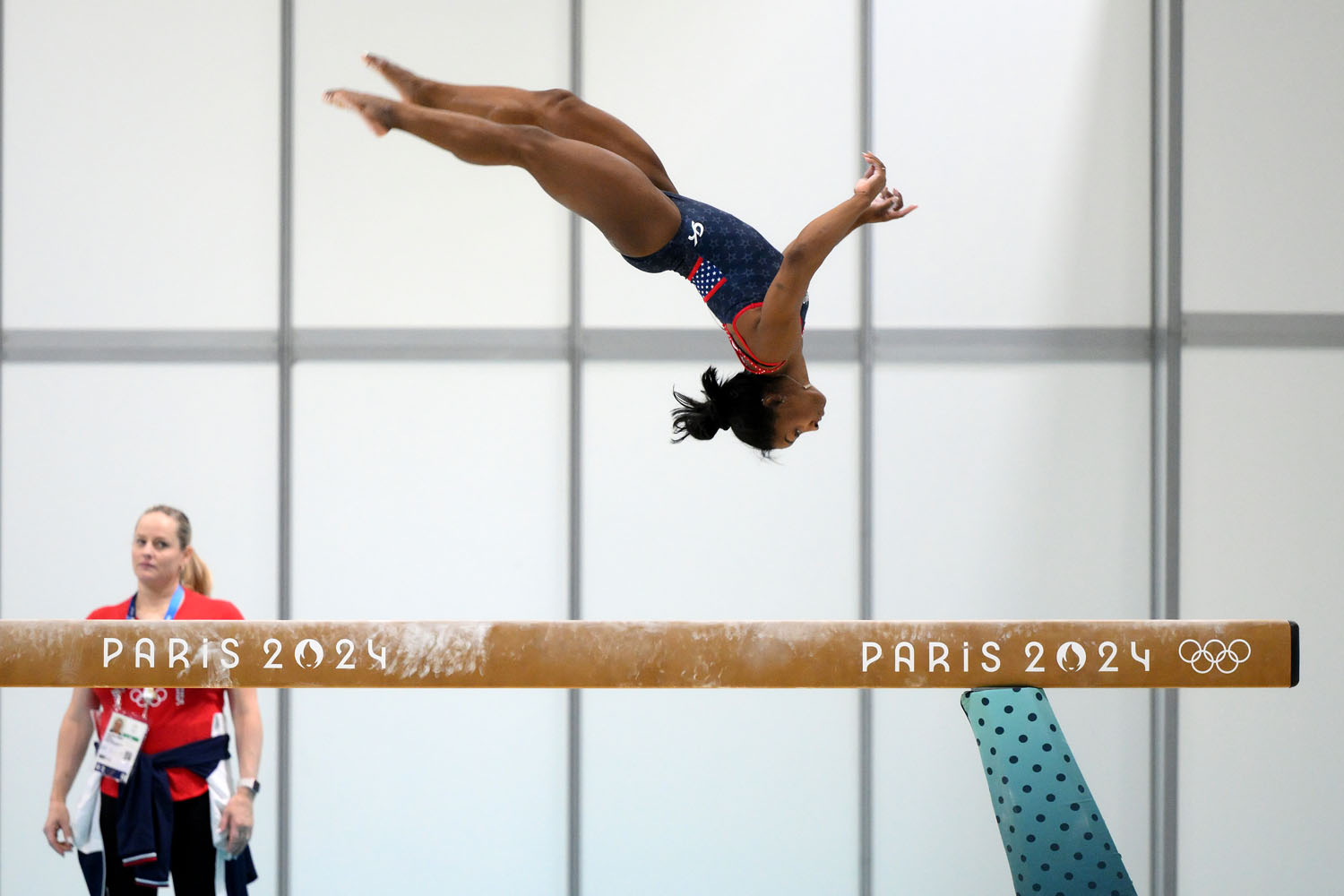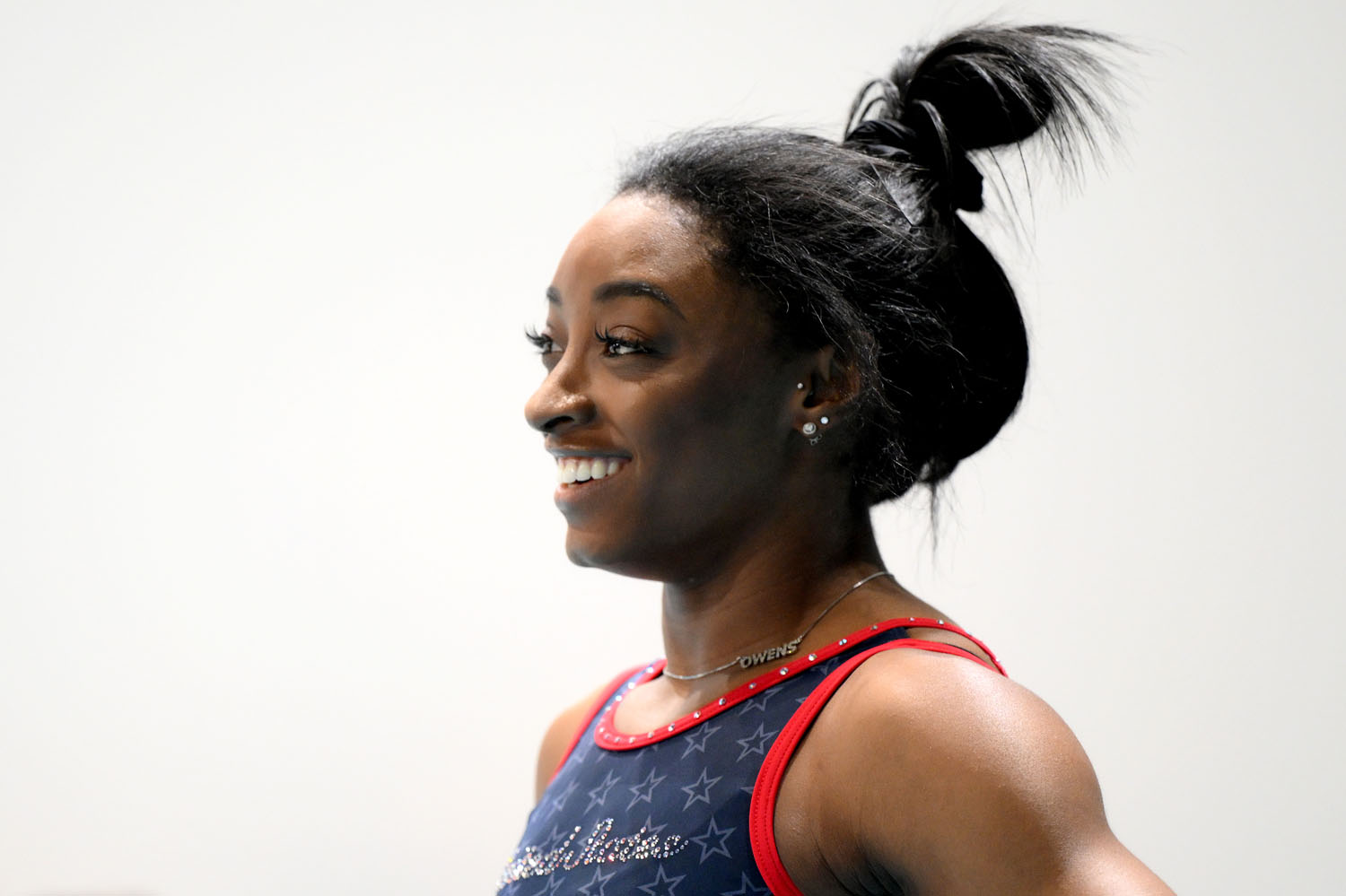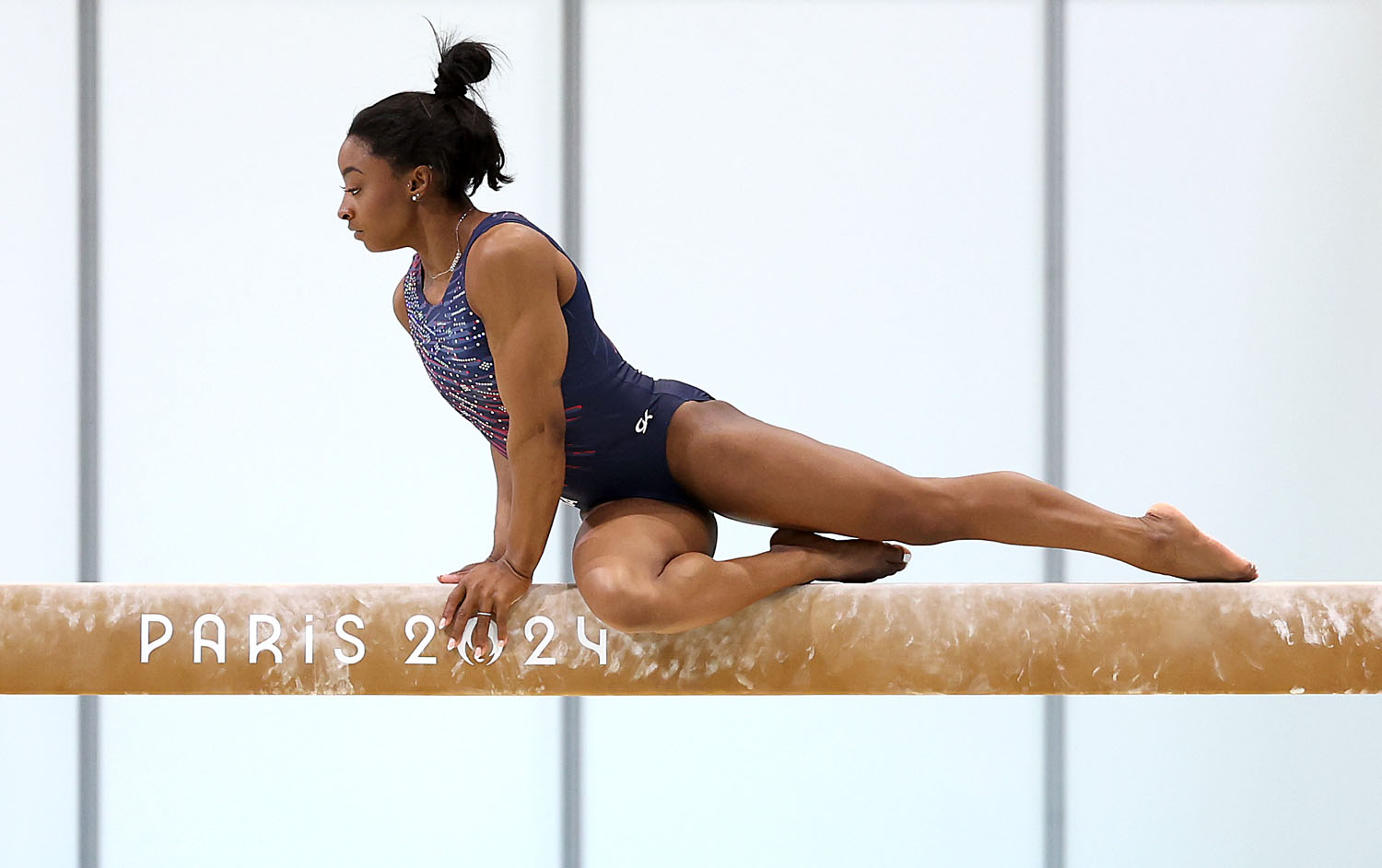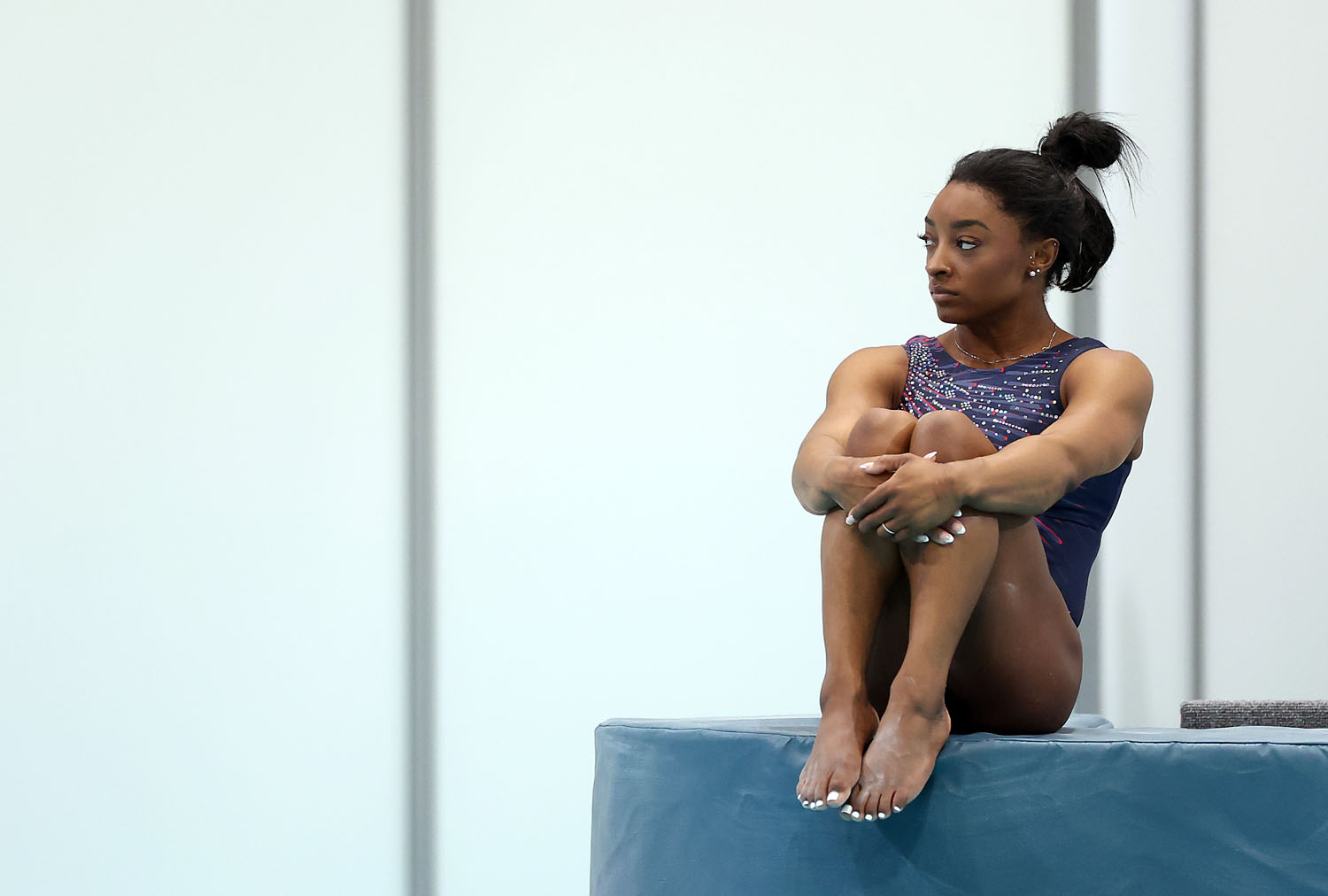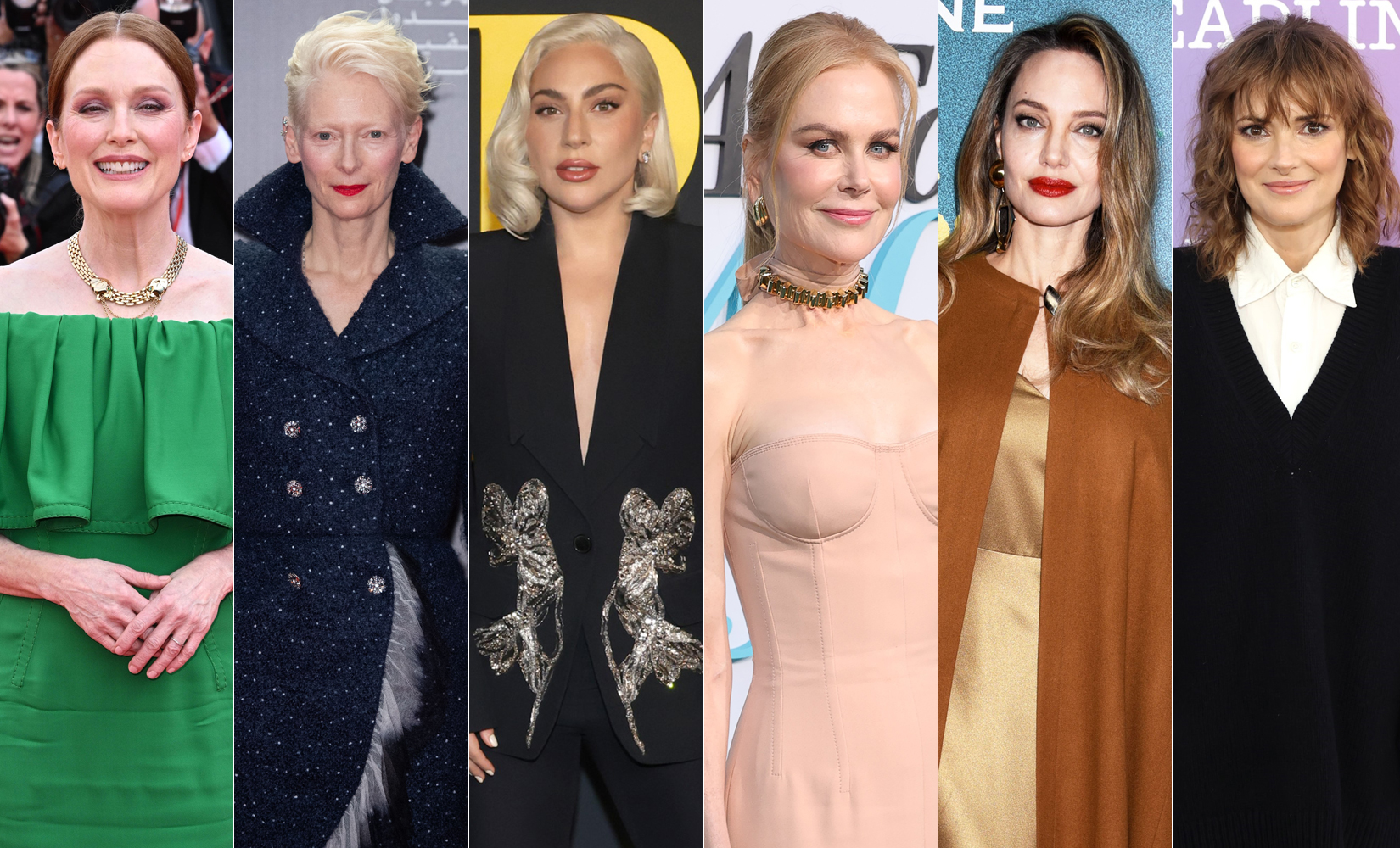Simone Always Rises


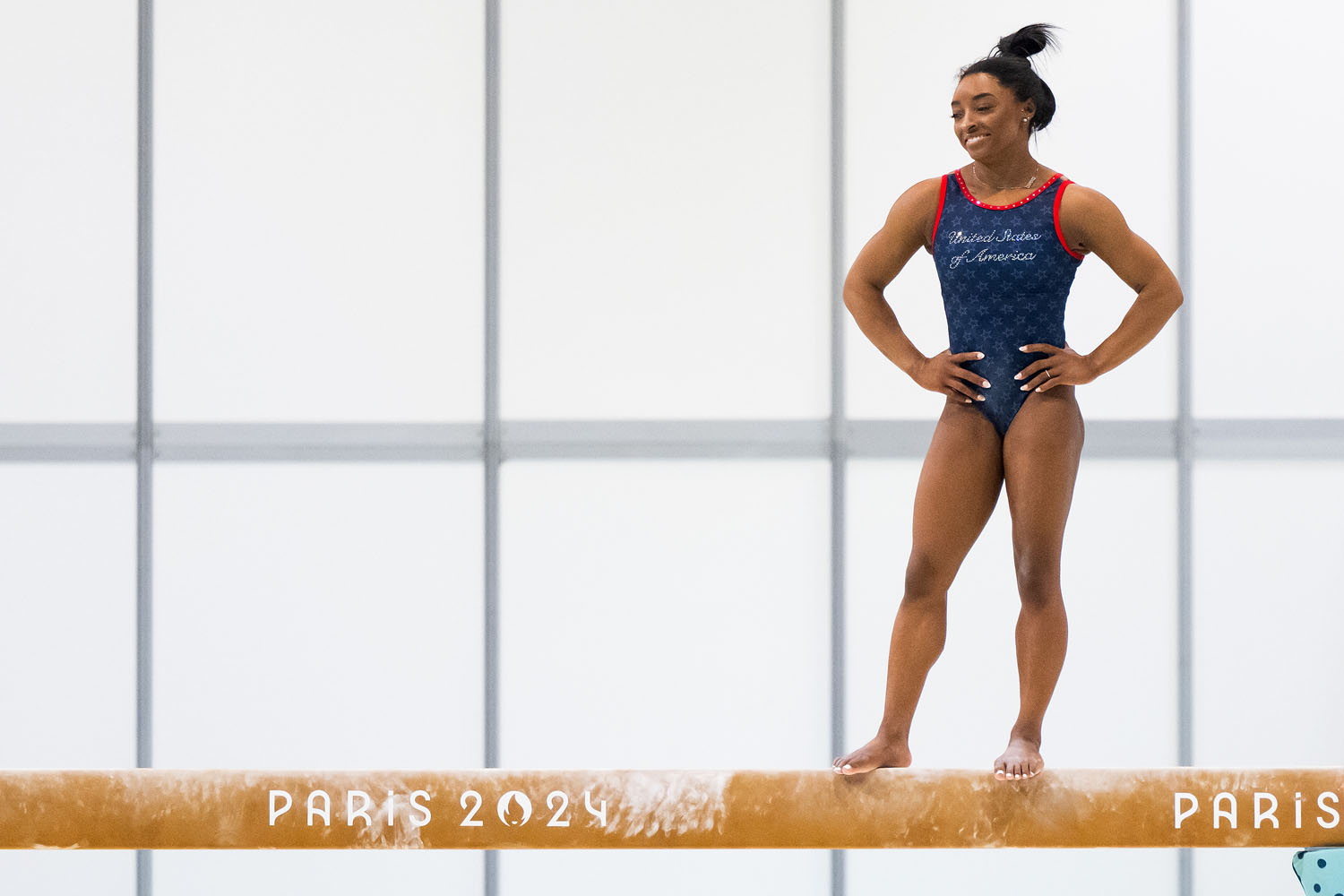
(Trigger warning for sexual and mental abuse and harassment.)
I am a competitive person. At least that is what my family, who has experienced many a game-night with me, tells me. But the desire for me or “my team” to win at all costs all but disappears when I watch the Olympics. When I watch these athletes, regardless of the sport or the country they are representing, I turn into everyone’s mom and I just want all my children to win.
Simone Biles has been an easy athlete to root for. For years, watching her in a competition or catching an online video of a routine, meant I was going to see greatness look easy. Maybe that’s why it was so shocking when, to protect her physical and mental well-being, to be safe, she withdrew from the Tokyo Olympics. She was experiencing “the twisties”, a term that so inadequately describes the incredible danger a gymnast faces when they get lost while in the air. After she made this decision, people all behaved normally and were supportive, of course (just kidding, people did not and were not). So not only did Biles have to face her own worst critic, her perfectionist self, but she had to face the bullsh-t that traditional and social media put out there, with many (mostly men) calling her some version of “selfish quitter” who should have just sucked it up for her team and the medal count.
While I remember this bullsh-t distinctly, it was still tough to rehear, reread, and rewatch in the recent Netflix documentary series Simone Biles Rising. While I assume that this series was meant to celebrate Biles’ greatness and capture a historic Olympic performance (and medal wins) from her in Tokyo, the first two episodes actually capture the devastation there, such as when she records herself in tears describing how scary “the twisties” really are as well as when she calls her mother from Tokyo to tell her she has decided to withdraw from the competition. We don’t hear Biles’ side of the conversation, but we hear her mother’s, and they are the words everyone should have echoed–they were kind, supportive, understanding. After all, if someone as great as Biles, who has risked her physical well-being for YEARS in this sport, knew this was the right call to make, who were we to question that? When THE GREATEST OF ALL TIME (seemingly with the knowledge and support of team doctors and her own coaches) made that decision, I, the woman who has never been able to master a cartwheel, figured this amazing athlete knew what she was doing.
I can only imagine what could have happened to Biles if the Karolyis had still been in charge.
We don’t have to try that hard–those of us who are old enough to remember Kerri Strug being carried to the podium to receive that team medal CAN imagine what Béla or Mártha Karolyi might have said or done if one of their athletes had been going through Biles’ dangerous struggle. That clip of Strug running towards the vault on an injured foot and basically sticking the landing is in many of our memories filed under, “acts of incredible badassery.” For many years, many of us were shoved this clip down our throats or we replayed it in our heads to remind ourselves that THERE ARE NO EXCUSES. But Biles’ withdrawal from the Tokyo games, as pointed out in the series, helped many of us collectively reexamine the Kerri Strug moment, to understand that in idolizing Strug’s performance, we dehumanized her. It is so damn hard to watch when right after she unnecessarily nails that vault, Strug drops to her knees and crawls in agonizing pain to the very person and people who helped cause it.
At one point, Biles says of her experience in the “Mártha Era”--” “You don’t even think about it until after the fact, now, years later. Wow, that was probably borderline abuse.” Olympic Champion Dominique Dawes devastatingly describes and critiques the gymnastics culture of her time when she says, “We were kids back then, and we were supposed to do as we were told. They thought that’s what it takes to build an Olympic champion or to build a college-scholarship athlete. And I will say that’s how you rip down a human being.”
And if what Simone Biles and her fellow gymnasts had to endure was “only” the physical, emotional and verbal abuse that many of them allege, well that would be horrible enough. But as we have known for a few years, many USA gymnasts experienced far worse under Larry Nassar, a person who not only took advantage of the innocence of young women but of a culture of silence and compliance to sexually abuse these athletes. How many young women’s abuse could have been prevented if the culture of USA gymnastics had been one that challenged its athletes but in a caring and supportive environment? The contrast to the coaching she receives now (at least at it is described and portrayed in the series) is striking–when one of them articulates that the only cure for “the twisties” is to take time off to try to understand why this experience is happening, we have a coach who recognizes an injury (a mental one at that) and understands the importance of treating it. I am so thankful of how much Biles and others discuss the importance of her taking the time to heal herself through talk therapy, infrequent low-stakes visits to the gym early on, and limiting her engagement with traditional and social media before she is ready to compete again. It is not lost on me that in her healing process and in this most recent string of successful meets, she takes the time to have a life beyond the gym. Meaning, it’s not always all about work. And success no longer has to mean perfection.
The second episode also includes a thoughtful discussion of the rigid beauty standards that have historically excluded, marginalized, and unfairly critiqued Black women in this sport. Dominique Dawes and Betty Okino were the first Black women to compete in the Olympics for the USA team, but their success was acceptable “in the shadow” of white gymnasts. Gabby Douglas’s historic all-around gold win was undermined by her hair trending on twitter. Someone described the effect of these rigid beauty standards as making Black girls/women feel “outside of the possibility of beautiful.” As Dominique Dawes so concisely describes: “Who I was was automatically a deduction.”
The 2 episodes that are now available (more are to come this fall, following her participation in the Olympics), are at times riveting, inspiring, infuriating, and validating to watch. There are so many great insights from her family, coaches, and decorated gymnasts that not only attest to Simone Biles’ greatness but to her HUMANITY.
Very proud to have worked on this docuseries as a writer. Simone Biles’ greatness as a generational athlete is practically unexplainable, but this doc is centered on her as a person — her vulnerabilities, fears, uncertainties and what drives her to prove herself when she has… https://t.co/6FNtGY4irk
— Jemele Hill (@jemelehill) June 19, 2024
I almost cried when Dr. Onnie Willis Rogers, UCLA gymnastics superstar and professor of Psychology at Northwestern names the absurdity of the games in the covid context of the summer of 2021, and then explains how she understood Biles’ experience:
“I immediately said, ‘She’s alone.’ Like, the fact the athletes have to travel without family, without friends, without their network… it grossly underestimates the importance of connection and community to our physical performance and possibilities.”
Which is why I am really bawling by the time we see Biles’ mother braiding her hair, and she points out that Tokyo was the only time she didn't braid it. We understand the importance of this mostly wordless ritual. As she says, Biles is an adult woman who can braid her own hair. But what matters is “the bonding” and “the touch” between mother and daughter.
My hope for Simone Biles at the Paris Olympics? That she’s safe, first and foremost. That her mental and physical well-being is at the center. I hope that she has fun competing and being with her athletic community and her family. And finally, I hope that she has an Olympic experience that she can be proud of – whatever that means to her and her alone. Regardless of what happens in Paris, I am already proud of her.
I told you, when it comes to the Olympics, I turn into everyone's weepy mom. I want them all to win. And to me, Simone Biles already has.
Here's Simone at practice today in Paris.

